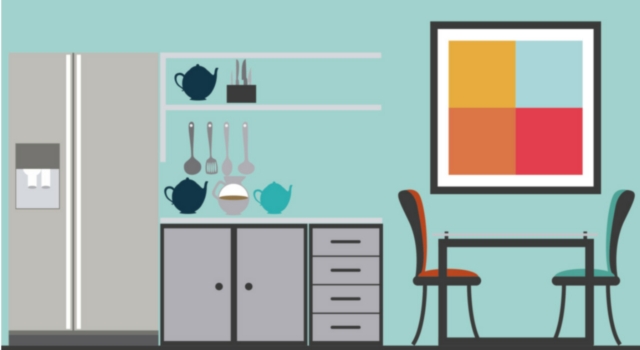Empower Your Customers to Make the Best Financial Choice

Nationwide spending on home improvements is reaching an all-time high, with more than $300 billion being spent by consumers so far in 2015.
According to market research, 75 percent of all home improvement projects over $2,500 are financed in some way. The fact is, people are less willing to dip into savings to cover the costs of home repairs or home improvements when they don’t have access to the equity in their homes like they had in the past.
Some people are willing to use a credit card to pay for a home improvement project instead of a home improvement loan.
Why can a credit card be so appealing? Americans like simplicity, and with a swipe of the card, their home improvement project is paid for.
No loan applications. No credit checks. No dealing with the bank.
But is that convenience really worth it? It may not be.
So, is there an advantage to taking out a home improvement loan instead of using a credit card? Yes, but undoubtedly, your customers may have objections. Here are three common objections (and ways to respond).
Objection #1: “A loan will bring my credit score down because the bank will pull my credit report.”
While it’s true that a credit inquiry may affect a customer’s credit score, how much it affects a credit score varies from person to person.
Typically, an inquiry will have very little impact on a credit score, unless there have been repeated inquiries in recent months. Credit scores are affected much more by high credit card balances, late payments, or derogatory events like charge-offs, repossessions, and bankruptcy filings.
Objection #2: “I don’t want another account on my credit report because it will hurt my credit score.”
This rationale depends on so many different factors that to explain them all at once would take all day. So let’s break it down into simple terms so that you can help them make the right decision that works best for them:
- How much an additional account on your credit report affects your credit score depends on the balance of that account and all of your other ones.
- The frequency of how often you add new accounts to your credit report weighs in on how another new account will affect your score.
- Credit reporting agencies consider you more of a risk if you are routinely maxing out credit cards versus occasionally taking out a new loan.
Objection #3: “I can get a better interest rate on my credit card than I can on any other loan.”
This is the phrase that marketing departments of credit card companies love to hear. What’s happening is that customers have gotten caught up in the advertisements that blast teaser offers like “1% Cash Back!” and “0% interest for six months!” that they are neglecting to see better options available to them. Not only are these promotional rates usually only good for a very limited time, but they may also default to a high interest rate when there is a missed or late payment.
One of the most overlooked and least understood loans in the industry is the Same-As-Cash Loan.
For example, let’s consider a 12-Month Same-As-Cash Loan. With one, your customer pays no interest on the loan if he or she pays the entire sum of the loan off at any point within that 12-month period. The bank has given him or her the opportunity to use the bank’s money interest-free to cover the cost of the home improvement project.
How is paying an initial teaser rate and then a higher interest rate on a credit card as attractive as a Same-As-Cash Loan? It’s not.
Conclusion
The goal here is for you to be able to help your customers make financial decisions that work best for them. Explain to your customers the advantages of taking out a home improvement loan instead of using a credit card, provide them with options and respond to their objections. The result is a positive selling experience for both you and your customer.
SOURCES:
Blog Archives
No posts for Nov, 2024




